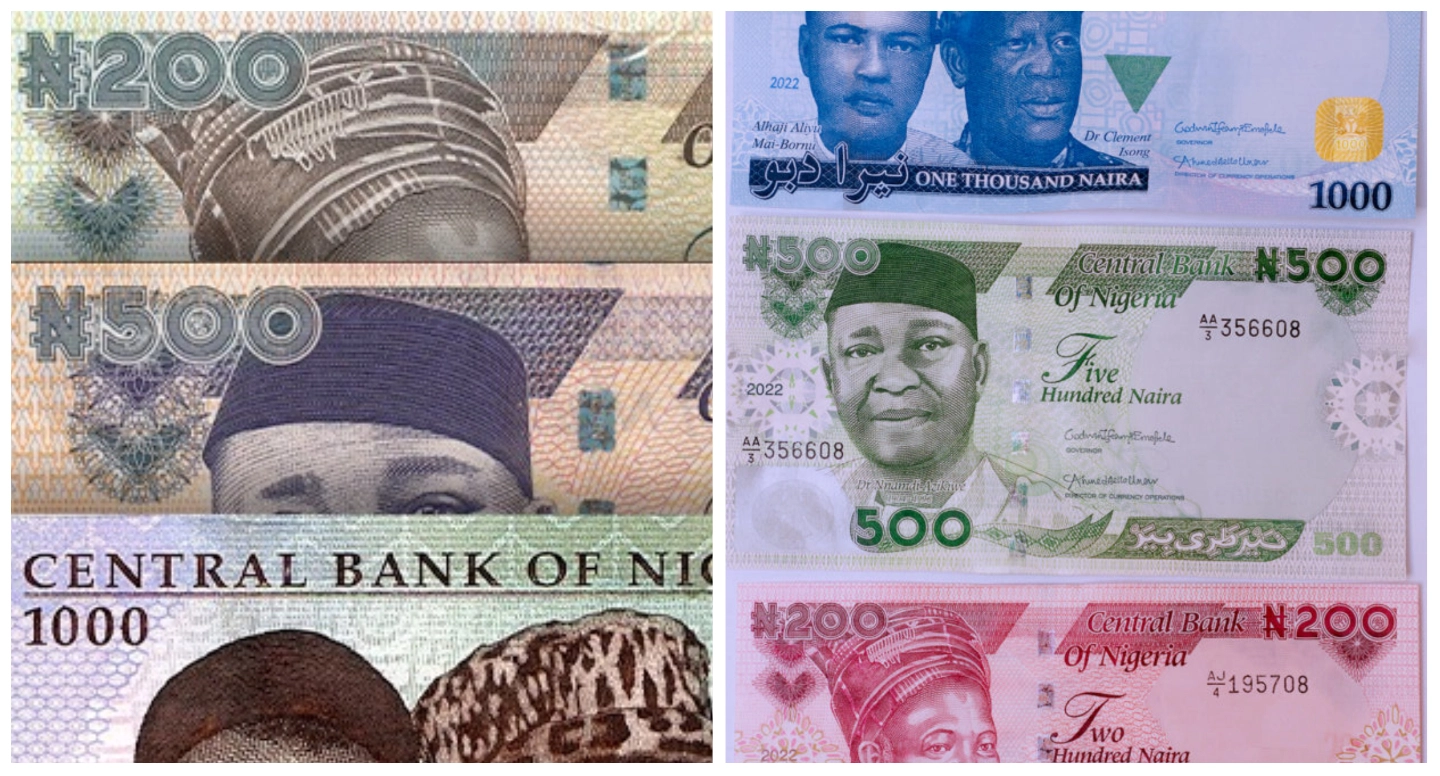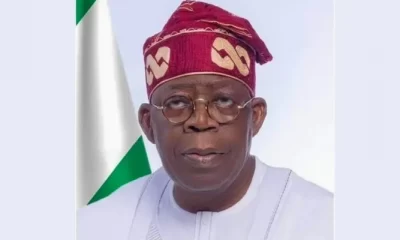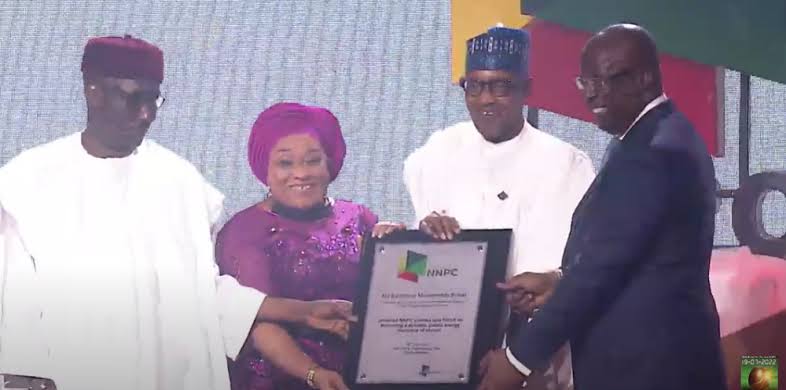Business
Floating Naira: Death knell for Nigerian Economy?
Published
3 years agoon
By
Marcel Okeke
A shocking headline in an online publication: “Naira slumps to N700/dollar as CBN floats currency, stops fixing exchange rates,” stirred my worry and alarm to pen this piece. According to the news story “the Central Bank of Nigeria (CBN) has reportedly directed Deposit Money Banks (DMBs) to remove the rate cap on the naira at the Investor and Exporters’ (I & E) window of the foreign exchange market, to allow for a free float of the national currency against the dollar and other global currencies.” This floating of the national currency is coming barely two weeks after President Bola Ahmed Tinubu’s ‘promise’ in his inaugural address that he was going to unify the nation’s multiple exchange rates.
According to Investopedia, a floating exchange rate is a regime where the currency price of a nation is set by the forex market based on supply and demand relative to other currencies. This is in contrast to a fixed exchange rate, in which the government (that is CBN, in Nigeria) entirely or predominantly determines the rate. The ‘online dictionary’ goes on to say that floating exchange rate systems mean long-term currency price changes reflect relative “economic strength and interest rate differentials between countries.” Furthermore, “short-term moves in floating exchange rate currency reflect speculation, rumours, disasters, and everyday supply and demand for the currency.” In the final analysis, “if supply outstrips demand, that currency will fall, and if demand outstrips supply that currency will rise.”
Also read: Nigeria’s new Govt: Economic progress at what cost?
This is where the challenges pile up for Nigeria and the Nigerian economy. As a country, Nigeria has been largely import-dependent: a large proportion of the citizenry having preference for foreign goods and services; factories importing machineries and raw materials; Nigerians in their numbers going for foreign degrees and certifications and paying in hard currencies, etc. This reality and preferences exist side-by-side with scarcity of dollar and other foreign currencies over the years. The country has largely been a mono-product economy—depending almost entirely on earnings from crude oil export. No substantial foreign exchange inflow from the export of non-oil items. Indeed, successive administrations had in reality paid only lip service to ‘effective diversification’ of the national economy. Year-in-year-out, the national budget is couched on the assumptions of the volume, value and price of crude oil in the international market. Yet, as a member of the Organization of Petroleum Exporting Countries (OPEC) since 1971—Nigeria neither fixes the price at which to sell her oil nor determine the volume of oil to bring to the market.
Also read: Subsidy Removal: Shutting down the Nigerian economy?
Besides, the oil and gas sector in the country is consistently confronted with motely intractable problems: bizarre oil theft phenomenon in recent times, to which the country loses approximately seventy per cent of her oil output; widespread vandalism of oil installations and assets; outright sabotage, among other issues. All these combined, had whittled the nation’s oil production capacity—leading to her inability to meet OPEC-allocated quota for a long while now. Again, all these lead to diminishing earnings (forex inflow) from crude oil sales. And not much comes from non-oil exports!
The consequence of all these has been lingering shortage of foreign exchange in the forex market: gross undersupply of forex vis-à-vis huge demand. Arbitrary fixing of the exchange rate (especially Naira to dollar) and multiplicity of exchange rates and ‘black markets’ have been the order of the day in Nigeria over the years. In this milieu, the monetary authority applies usually ‘unorthodox’ methods and strategies in ‘defending’ the Naira and conserving the stock of the country’s foreign exchange reserves. Now that the Naira will become a ‘floating currency’, its true strength against the dollar and other currencies will begin to show. As reported above, a day or two after the unification of the exchange rates of the Naira against the dollar, the value of the local currency had slumped: from the official level of N465/$1 early this month to about N700/$1. And this is just the beginning of the crash!
It needs to be noted however that the strength of a currency vis-à-vis others is a function of the export earnings of the country (in dollars). Therefore, if Nigeria had been (a diversified) exporting country, its weakening Naira (owing to the floatation) would have made its exports earn much forex. But, as a largely import-dependent economy with very limited forex earnings, the (looming) excess demand for forex (over supply) would likely take the Naira down a bottomless abyss. The immediate impact of the Naira floating will include a fast depletion of the stock of foreign exchange reserves of Nigeria. This will in turn expose the ‘lack of economic strength’ and un-business worthiness (even un-credit worthiness) of the country to the rest of the world.
Also, the (likely) continued crashing of the value of the Naira against the dollar and others could lead to the local currency losing its key function as a store of value. Economic agents do not want to keep (or denominate) their assets in fast devaluing currencies, but rather in relatively stable ones and low inflationary environments. And so, this would lead to more ‘dollarization’ of the Nigerian economy—a situation where (officially or otherwise) people will prefer business transactions in dollars and other hard currencies. The fast-weakening Naira will also join the aftermath of sudden petrol subsidy withdrawal in further driving up the prevailing hyper-inflationary trend to dizzying heights. This is inevitable!
However, highlighting of all these ugly possibilities is not in any way intended to support or defend the existence of a multiplicity of Naira exchange rates against the dollar, as has been the case in the country in the past years. The unorthodox forex market management in place all these years gave so much room for fraud, opacity, patronage dispensation, insider dealings and other abuses. While the various exchange rates existed, round tripping, arbitrage and various forms of racketeering were features of the forex market. The market deepened ‘rentier practices’—having groups of people who are made rich by giving them access to the scarce forex at ‘official’ low rates. These huge volumes of ‘cheap forex’ are usually sold in ‘other markets’ for forex at substantial ‘gains’.
No doubt, all these have wreaked a lot of havoc on the Nigerian economy over time. However, floatation of the Naira (as reported) should have been implemented in a less hasty manner than what is taking place now. Floating a weak currency (if at all it is a necessary option) ought not to have come by fiat like the fuel subsidy removal also being implemented. The two critical economic policies should have come as integral parts of a wholesome full-scale economic development blueprint for Nigeria; not even presidential manifesto nor an inaugural address as are the instant cases. The economy is a system; and whimsically picking parts of the system without a thorough consideration of the interconnectedness of the blueprint’s parts usually leads to unintended/suboptimal results. The recent example of the Naira redesign policy comes handy: a seemingly good policy ended up unleashing harsh unintended outcomes on the citizenry. The policy was not part of any larger development plan, but the CBN operating in its ‘silo’ was doing its own thing in its own way. Even the head of the ministry of finance, budget and planning at that time, denied knowledge of what the CBN wanted to do!
It will therefore be most politic for the present administration to swiftly come up with its full-scale economic development blueprint. This will fully ‘incorporate’ President Tinubu’s manifesto and inauguration address—to avoid the dangers of initiating critical economic policies in a staccato manner. Also, former President Buhari’s ‘Nigeria’s Agenda 2050’ could still be adopted or adapted by the current administration, to avoid terrible mistakes of recent past in the management of the nation’s economy. This calls for the urgency of now!
- Mr. Okeke, a practising Economist, Business Strategist, Sustainability expert and ex-Chief Economist of Zenith Bank Plc, is National Daily Columnist. He can be reached via: [email protected]
You may like


IPMAN-Dangote partnership drives down PMS prices


Nigeria targets $17 billion from sale of TBS and other National Assets


Subsidy Removal: Shutting down the Nigerian economy?


Subsidy: Mele Kyari’s NNPCL as a Parallel Government?


Again, fuel subsidy debacle and Nigeria’s future


Nigerian economy adversely impacting insurance industry- Jim Ovia
Trending

 Entertainment1 week ago
Entertainment1 week agoSinger Simi faces backlash after TikToker admits to false rape allegation

 Entertainment5 days ago
Entertainment5 days agoSimi addresses resurfaced 2012 tweets amid online backlash

 Comments and Issues1 week ago
Comments and Issues1 week agoNigeria’s Declining Oil Output and Soaring Foreign Portfolio Investment Inflow

 Comments and Issues1 week ago
Comments and Issues1 week agoEx-prince Andrew’s arrest, lessons for Nigeria

 Comments and Issues1 week ago
Comments and Issues1 week agoThe Seyi Tinubu’s jellof rice, loaves of bread

 Health7 days ago
Health7 days agoSCFN, LUTH introduce bone marrow transplants as curative treatment for sickle cell

 Health3 days ago
Health3 days agoDeclassified CIA memo explored concealing mind-control drugs in vaccines

 Football7 days ago
Football7 days agoHarry Kane nets brace as Bayern edge Frankfurt 3–2 to go nine points clear

